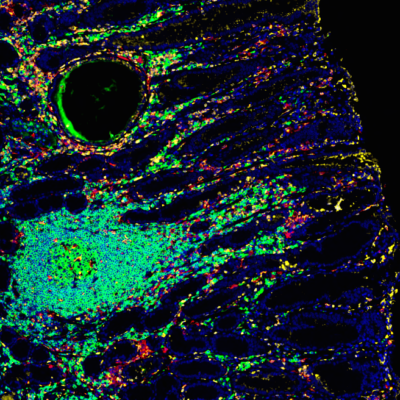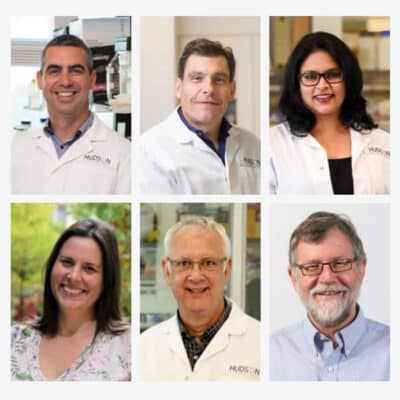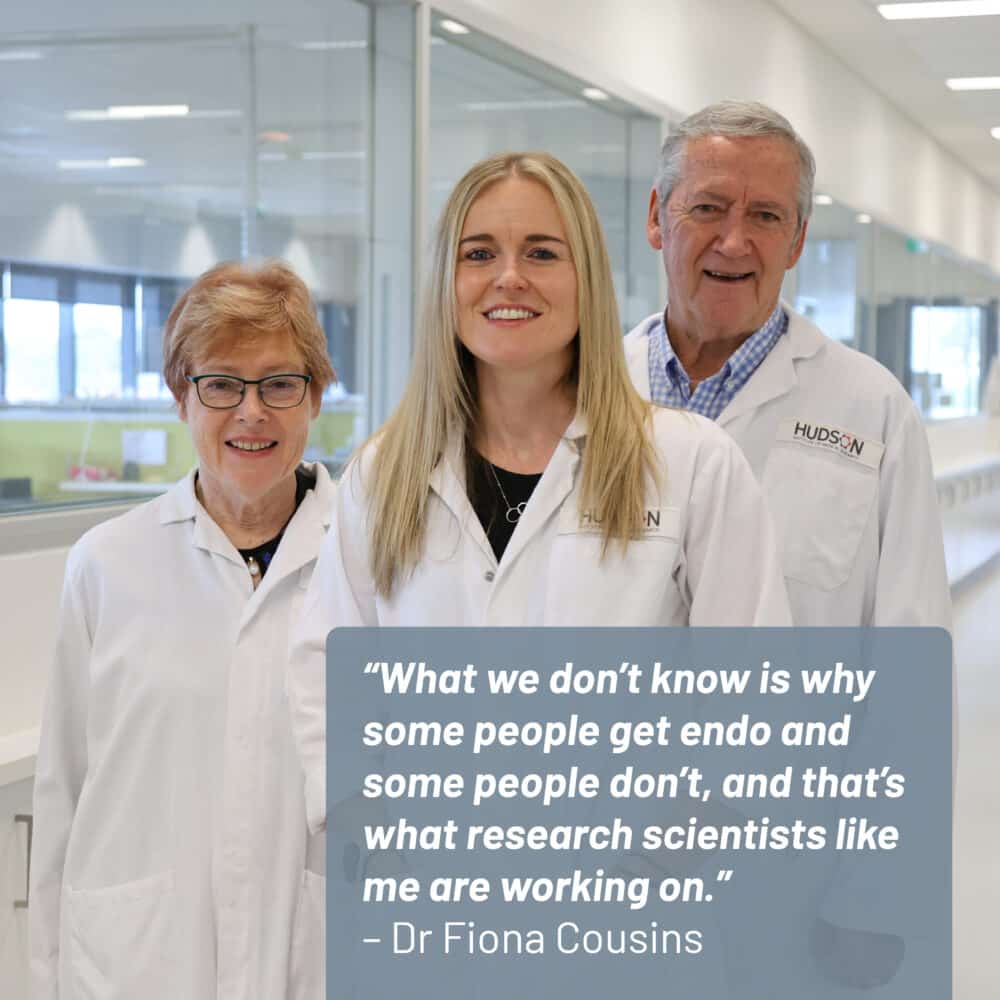Immune cell clusters grow with stomach cancer but hold few clues
By Hudson Institute communications
‘Clusters’ of immune cells are associated with advanced stomach cancers, but they provide few clinical or prognostic clues for these tumours, a new Hudson Institute study has found.

Professor Brendan Jenkins, the study’s co-author, says that in some other cancers, the presence of these clusters, called immune cell aggregates, indicates improved patient survival – but this is not the case in preclinical models of stomach cancer.
The findings of the study, a collaboration with Cardiff University, Kanazawa University and Monash University, have been published in the International Journal of Cancer.
The preclinical study was the first to examine the role of these specific inflammatory cell aggregates in stomach cancer.
“While the growth of these immune cell clusters coincided with when stomach tumours grew in the study, they weren’t indicative of patient survival or prognosis,” Prof Jenkins says.
The majority of stomach cancers are diagnosed at a late stage when treatment options are limited, so there remains the need to identify new ways of detecting this malignancy earlier.
“Immune cell aggregates are clusters of immune cells that often develop in tissues affected by chronic inflammation, as well as in certain inflammation-associated cancers where they are an indicator of patient survival,” Prof Jenkins explains.
Stomach cancer facts
Stomach cancer, also known as gastric cancer, usually begins in the lining in the upper part of the stomach.
Stomach cancer is a relatively common cancer in Australia.
In 2014, 2148 new cases of stomach cancer were diagnosed in Australia. Stomach cancer affects nearly twice as many men as women.
In 2015, there were 1150 deaths due to stomach cancer in Australia.
The search for clues continues
These immune cell aggregates, or tertiary lymphoid structures often look and behave like lymph nodes and the spleen, but little is known about their role in cancer, or how they develop.
The team are continuing investigations into the meaning behind the presence of these clusters in stomach cancer patients.
Team | David G. Hill, Liang Yu, Hugh Gao, Jesse J Balic, Alison West, Hiroko Oshima, Louise McLeod, Masanobu Oshima, Awen Gallimore, Kimberley D’Costa, Prithi S Bhatha, William Sievert, Richard L Ferrero, Brendan J Jenkins, Gareth W Jones
Contact us
Hudson Institute communications
t: + 61 3 8572 2697
e: communications@hudson.org.au
About Hudson Institute
Hudson Institute’ s research programs deliver in five areas of medical need – inflammation, cancer, reproductive health, newborn health, and hormones and health. More
Hudson News
Get the inside view on discoveries and patient stories
“Thank you Hudson Institute researchers. Your work brings such hope to all women with ovarian cancer knowing that potentially women in the future won't have to go through what we have!”





